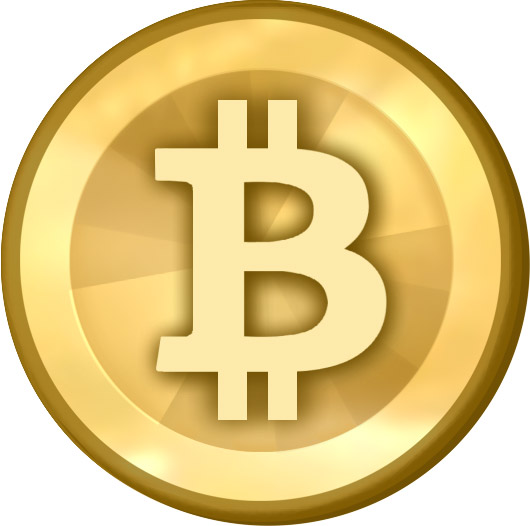OSGA has been covering the use of bitcoin for gambling purposes for almost 2 years now and there is no question the popularity of the virtual currency has grown. When OSGA published its first article on bitcoins, the currency was worth just over $3 USD but since then it has skyrocketed. More traditional companies have started accepting bitcoin as a payment option and exposure about the currency on shows like 'The Good Wife' resulted in Bitcoins trading as high as $250 USD before falling back to its current level just over $125 USD. It's uncertain just how much the real value of a bitcoin is although experts in the field have told me they expect it to settle in around $50 USD once all the crazy trading has settled down. I must confess that I tried to purchase some bitcoins and try them out at a bitcoin sportsbook or poker room so I could properly explain how effective and easy they are to use but I kept receiving error messages while attempting to purchase them and after a while just gave up. The process is supposed to be easy but I guess I'm a better writer than I am a techie. I have been talking to numerous operators in the bitcoin industry, asking whether the value of bitcoins is really over $100 USD and the response I received has been similar from almost all of them:
"The real power of bitcoins is sending them around, using your wallet, and watching the network work," RC from btcsportsbet.com informed me.
A spokesperson for a Bitcoin payment company gave a similar reply:
 "Bitcoins are now worth a lot of money in theory but they become useless if people are only going to use them as a clearing house to obtain other currencies like U.S. dollars or Euros. What we really need is more merchants to become part of the bitcoin network and then those merchants could buy supplies and merchandise from other bitcoin merchants on the network. Once that happens, bitcoin merchants become their own marketplace, bitcoins becomes its own network and the only thing that will matter is how many bitcoins something costs, not how much it's worth in relation to other currencies. Only then will the true value of bitcoins be known."
"Bitcoins are now worth a lot of money in theory but they become useless if people are only going to use them as a clearing house to obtain other currencies like U.S. dollars or Euros. What we really need is more merchants to become part of the bitcoin network and then those merchants could buy supplies and merchandise from other bitcoin merchants on the network. Once that happens, bitcoin merchants become their own marketplace, bitcoins becomes its own network and the only thing that will matter is how many bitcoins something costs, not how much it's worth in relation to other currencies. Only then will the true value of bitcoins be known."
There is indeed some truth to that. Before paper currency all trades were made in the form of barter and the value of paper currency was only realized when those bartering were willing to take the paper in exchange for say a goat. Moreover, for the longest time the U.S. dollar was worth about 1.5 times that of the Canadian dollar. In the last decade, however, thanks to the increased value of Canadian commodities, high inflation in the United States and lower interest rates in Canada, the Canadian dollar has closed the gap and for almost 5 years has been pretty much at par with the U.S. dollar. However, that fact is irrelevant to consumers in Canada or the United States. Canadians haven't seen a drop in prices for goods because their dollar is now "worth more" and similarly Americans haven't seen a huge rise in prices because their dollar is now "worth less". Prices for goods are still set on a supply/demand ratio and merchants can only charge what the consumer is willing to pay. The only important factor to consumers is how much the currency they are holding will buy them in their own stores not what that currency is worth on the global market. So if $30 buys a pair of Levi jeans today and the same amount buys a pair of Levi jeans next year it is irrelevant to the consumer how the U.S. dollar has faired against other currencies in that timeframe if the spending power of that $30 hasn't changed. Thus, if a person has say 100 bitcoins in their wallet and a product costs 5 bitcoins it really doesn't matter if the bitcoin is trading at 50 cents or 50 dollars if 5 bitcoins remains the cost of a product regardless of the fluctuation in relation to the U.S. dollar. That is particularly true if the person holding the bitcoins and the merchants have no intention of trading them in and instead keeps the bitcoins within the network.
Unfortunately for bitcoin merchants, particularly those operating in the areas of gambling, the U.S. government now recognizes the potential value of bitcoins and has decided to crack down on American companies trading in bitcoins. About 2 weeks ago the Department of Homeland Security (DHS) issued a seizure warrant for the funds associated for the Dwolla account at Mt. Gox (the major bitcoin payment centre). Despite the fact that Mt. Gox is located in Japan it appears that the DHS believes it is within their right to seize all funds directed to a foreign entity from U.S. accounts as it did with NETeller in 2007 and other payment processors in recent years. It's uncertain on what grounds the funds were seized although the ability to purchase illegal drugs and contraband, along with the ability to gamble raised the eyebrows of the DEA.
I asked RC whether that development was a concern to his company and he said it was to a degree:
"Yes, there is some concern. Keep in mind Americans can wire directly into Mt. Gox (based in Japan). This seizure only involved accounts related to the Dwolla (American) processor. No Mt. Gox accounts in Japan or other jurisdictions were impacted.
This level of regulatory scrutiny and prosecutorial action is happening more quickly than anyone expected, so it is a concern. However, we only deal in Bitcoins - not USD like Mt. Gox, so there is no money transmitter/banking impact for us. Business has never been better."
RC also mentioned he was talking to an offshore sportsbook about a possible partnership and 3 U.S. facing sportsbooks and poker rooms emailed me to try and get them more information about bitcoins as a possible payment option. They acknowledged that bitcoins aren't their first choice of payment options due to the huge fluctuation in the value of the virtual currency but they also realized that there is potential that would allow them to continue U.S. operations without dealing with the global banking system which the United States government has shown they are prepared to manipulate in their own interest. MD from an offshore sportsbook emailed the following:
"As a primarily US-facing sportsbook, we are faced with the challenges of our peers as they relate to processing. We would be interested in speaking with anyone that may be able to help us advance our use of alternative funding methods. We see some of the challenges related to Bitcoin but also see the potential for a new payment method for our clients."
In further discussions with a LJ from a different sportsbook I was told that they would probably purchase several thousand bitcoins and people who want to bet with bitcoins would be paid in bitcoins if they win. "Doing so would eliminate the concern about increase or decrease in relation to other currencies," LJ stated. "If they wager 10 bitcoins and win 50 bitcoins they would then have 50 bitcoins put in their wallet. The fluctuation in the value of bitcoins in relation to the U.S. dollar doesn't matter because if they want to sell their bitcoins for real currency they assume the risk not us. We will simply keep any bitcoin winnings in our virtual bank." Apparently Switch Poker which has been offering bitcoins as a payment option for almost 2 years has used the exact same method.
While some offshore gambling sites and the bitcoin specific gambling sites are excited about the prospect of bitcoin as a payment option, the same doesn't necessarily hold true for all bettors.
I spoke to 2 fairly prominent bettors and 3 casual bettors who said they considered betting with bitcoins but have backed out for different reasons. One prominent bettor (I'll call him Mr. X for the sake of this article) was clear that he couldn't afford the fluctuation in the currency:
"I talked to some people in my syndicate about betting with bitcoins," Mr. X said, "but the volume and offers at sites like BTCsportsbet and similar sites just aren't worth my time." He continued, "even if bitcoins continue to grow their purchase option is so limited that I would have to trade them for U.S. dollars to make it worth my while and with the massive fluctuation in the value it's a gamble I'm not prepared to make. If I buy 1,000 bitcoins at $150 and one week I lose 500 bitcoins and the next week I win 1,000 bitcoins how does that help me if in 2 weeks they are worth $60? Technically by winning 500 units I'm actually down 15 dimes! Until there is more stability forget it, I'm not a day trader."
A couple of the casual bettors had a different reasoning for shunning bitcoins. One of those bettors, Jim, was very worried about the recent seizures and he also mentioned that he hated the high value of the currency:
"I lost over $1,000 when NETeller funds were seized," Jim stated. "I could have sent in my information to the DoJ and IRS to get my money back I suppose but my privacy and personal info was worth more than a thousand bucks to me. With the feds seizing funds of a payment operator last week you know this is just the beginning and I won't go down that path again. Fool me once shame on you, fool me twice shame on me." Jim also mentioned that he usually bets between $20 and $50 a game and he has no interest in betting fractions of a unit. "I'm going to have to wager 0.13 bitcoins to get back 0.18 or something like that? How stupid. If I bet I want to bet full units and I want to win full units." Jim was not alone in that concern. Both of the other casual bettors stated a similar notion. "At $3 I know I can bet 10 bitcoins to win 10 bitcoins, that is appealing to me betting fractions is just stupid. I would never bet 23 cents on a game so why would I bet .23 bitcoins?"
While that logic may be flawed, it appears that it's a real concern for many smaller bettors which is why I suggested they may want to look at other virtual currencies. Two of the larger virtual currencies aside from bitcoins are litecoins and namecoins. At the time of writing litecoins were worth just over $3 USD each and namecoins were worth just under a buck. At those prices bettors could wager full units of the virtual currency and win full units with even the smallest of bets. The concern with those currencies is that the market of products one can buy with those is even less than bitcoins so the same concern about the real purchase power of bitcoins is accentuated even more with the other virtual currencies. Nevertheless, Anton, one of the contributors to the litecoin project, was adamant that litecoin was bettor for gambling transactions than bitcoins for various reasons:
"Litecoin is very similar to Bitcoin as it is based on the Bitcoin implementation. Major differences are faster transaction confirmations, larger amount of currency that will be generated and most importantly a different algorithm used to calculate "mining" solutions. The Litecoin network is only 1.5 years old and only 20% of the currency has been generated, whereas Bitcoin is 4+ years old and over 50% of the currency has been generated.
I think the general position of everyone involved in the development of the project is not to compare it to Bitcoin in terms of features. All features can be argued for or against. A lot of people in the community, however, think that faster confirmation times are a huge benefit, especially when it comes to gambling. Some would argue that a single confirmation of 2.5 minutes is better then Bitcoin's confirmation of 10 minutes, but others will argue that this doesn't matter. New services are appearing every week and the network is gaining large acceptance mainly due to the fact that ASICs are beginning to dominate bitcoin mining industry rendering GPU farms (mining setups made with high-end video cards) obsolete. Litecoin is providing safe heaven for already established mining ventures while still allowing newcomers to join in if they have good gaming equipment.
Another interesting side of Litecoin (currently) is that it does not allow small transactions on the network without high fees. The fees will be lowered in the near future; however, the intent of the development team is to prevent micro transactions, not allowing systems similar to Satoshi Dice to pollute the system with a lot of tiny transactions, making the system database grow too fast. (Bitcoin transaction database - blockchain – is currently 7GB in size and growing rapidly, which by many viewed as a problem, even though Satoshi Nakomoto has disregarded this as a problem by stating that storage capacity will continue to increase, while cost of storage will continue to decrease)."
Asked what gambling sites are accepting litecoins, Anton gave a small list.
"There are some gambling sites. Those off the top of my head are Satoshi Roulette as well as Litecoin Dice. Roulette supports multiple crypto currencies, including Litecoin. Litecoin Dice is a copy cat of well known Satoshi Dice. There are others. I can collect a list of gambling sites if you need."
I asked the same casual gamblers mentioned earlier if they were willing to bet with the smaller currencies given their lower value but their attitude was best described by Jim. "I am interested to a degree but not yet. If I win $1,000 at PokerStars I can withdraw that money and buy myself a new sofa. If I win 300 litecoins where do I go to buy a sofa with that?"
There's no question that there is still a lot of speculation about bitcoins and the other crypto currencies. But the best news for all virtual currency sites is that people are talking about it and the network is growing. As always OSGA will keep its readers informed about the developments of virtual currencies in relation to the gambling industry.
Contact Hartley via email at hartley[at]osga[dot]com.
Read insights from Hartley Henderson every week here at OSGA and check out Hartley's RUMOR MILL!






































